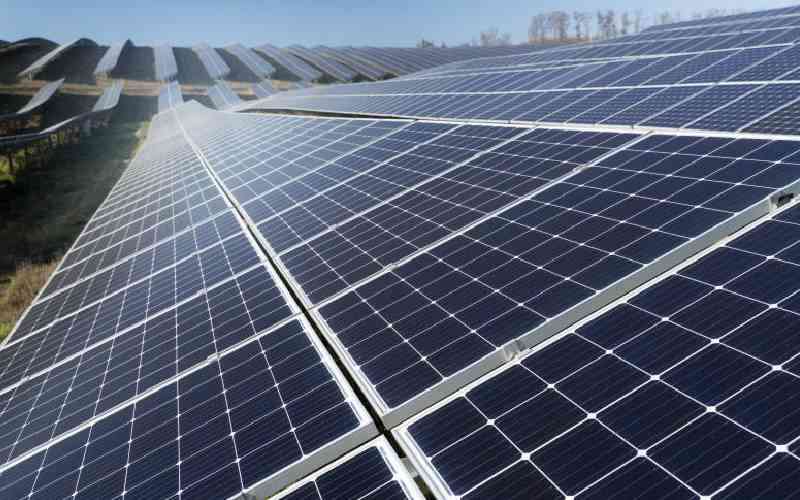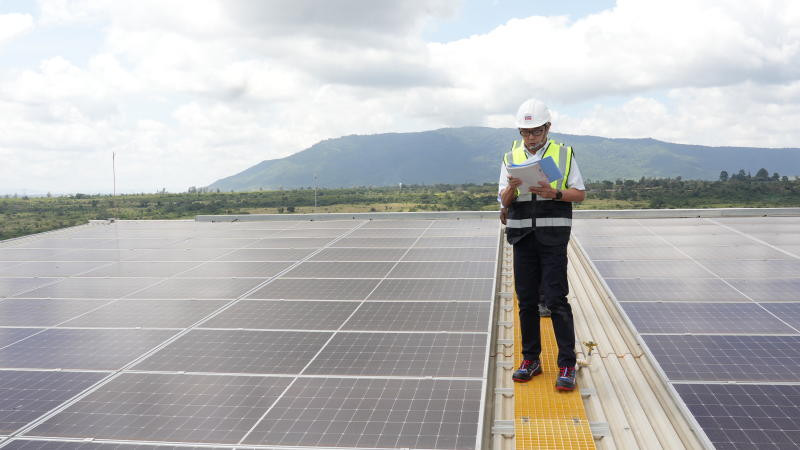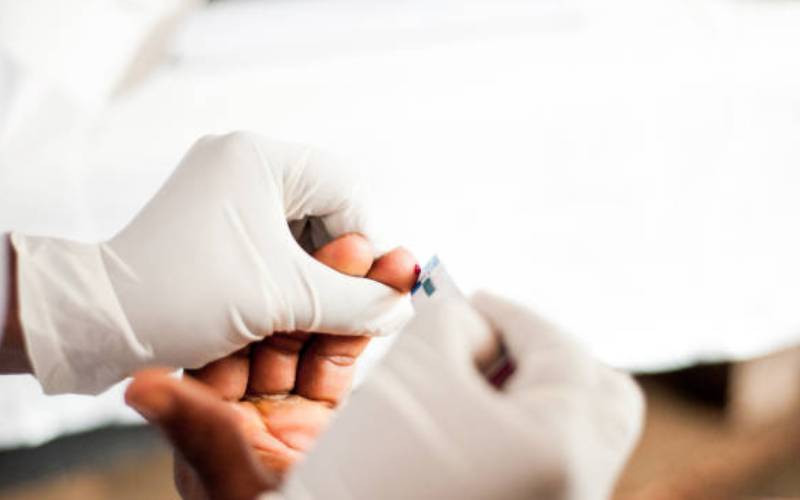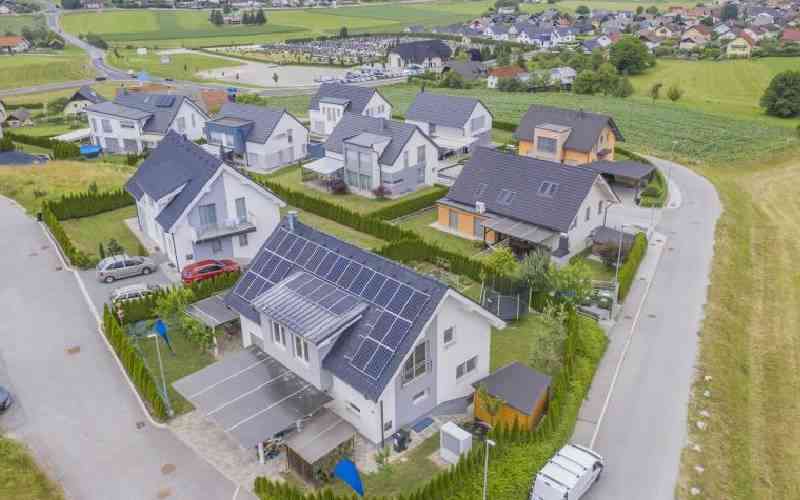By Frankline Sunday
Nairobi, Kenya: For many developing countries, renewable energy is a priority.
From nuclear energy to wind and geothermal development projects, billions of dollars are being directed towards alternative energy development.
In Kenya, several capital-intensive projects are at various stages of development, with the aim of delivering affordable energy to Kenyan homes and industries within the next 15 years.
However, for the most part, such projects have been complex and out of reach for many people, owing to the scale of the financial and technical resources needed to develop them.
But now, an initiative that traces its origin to the informal settlement of Kibera is giving young people from disadvantaged communities a chance to benefit from solar energy.
Using simple ingredients — recycled bottles and bleach — the initiative has begun the mass production of solar-powered light bottles that have so far lit up hundreds of schools and homes in informal settlements.
The solar bottles are in the form of clear plastic bottles that are filled with water and bleach and fitted into a hole made on a rooftop.
The sun’s rays hit the solution and are reflected into a room with an intensity that is equal to 55-watt bulb.
POWER BILLS
The bottles, which are sold at Sh80 each, are targeted at dimly lit households in informal settlements that are often windowless, forcing residents to keep the lights on during the day, which translates to high energy use and expensive power bills.
“We started the project with some youth in Kibera, and it was meant to provide them with the business skills to develop renewable energy solutions for the counties they live in,” says Ms Hital Muraj.
Ms Muraj is the founder of Connecting Voices of Inspiration, a community based organisation, which came up with the project.
“There are several programmes that have been initiated to provide employment for young people, but some have been unable to create a sustainable stream of employment, and those involved often find themselves going back to their previous situations,” she says.
Muraj believes the solar bottles project is a long-term and sustainable project with a longer-lasting impact because it is hinged on an entrepreneurial model that can be scaled up according to the need and availability of resources.
Stay informed. Subscribe to our newsletter
RECYCLING
“We partnered with business students from Durham University in the US who came in as economic advisers to instruct and train the youth on how they can create profit-making businesses from the project,” she says.
Solar Project Kenya also partners with the youth groups to buy empty plastic bottles from recyclers in the city, put together the solution and package the final product for sale.
The groups then go door to door selling the bottles to households, schools and clinics in informal districts in the country.
So far, there have been 7,000 bottles made and distributed, Ms Muraj says, and the organisation is hoping to triple this number and reach even more households.
“We have gone up to Mombasa where we had 120 bottles distributed in Bombolulu last year, and we are expanding our reach to recruit more young people to act as salespeople,” she says.
At Sh80, the solar bottles have a lot of cost-saving implications for residents of informal settlements.
Not only do they save on their electricity bills, but they also minimise the risks of fire from candles or paraffin lamps, which are the more common light sources.
However, the project is facing several challenges, key among them being the cost of production.
It takes Sh100 to Sh120 to produce one bottle because of the costs of bleach, Muraj says. However, this expense cannot be passed down to the target market — low-income households — as it would compromise uptake.
Muraj, however, is in talks with several investors to help her organisation procure materials at lower prices, which she hopes will eventually reduce the unit price of each solar bottle.
 The Standard Group Plc is a
multi-media organization with investments in media platforms spanning newspaper
print operations, television, radio broadcasting, digital and online services. The
Standard Group is recognized as a leading multi-media house in Kenya with a key
influence in matters of national and international interest.
The Standard Group Plc is a
multi-media organization with investments in media platforms spanning newspaper
print operations, television, radio broadcasting, digital and online services. The
Standard Group is recognized as a leading multi-media house in Kenya with a key
influence in matters of national and international interest.
 The Standard Group Plc is a
multi-media organization with investments in media platforms spanning newspaper
print operations, television, radio broadcasting, digital and online services. The
Standard Group is recognized as a leading multi-media house in Kenya with a key
influence in matters of national and international interest.
The Standard Group Plc is a
multi-media organization with investments in media platforms spanning newspaper
print operations, television, radio broadcasting, digital and online services. The
Standard Group is recognized as a leading multi-media house in Kenya with a key
influence in matters of national and international interest.











